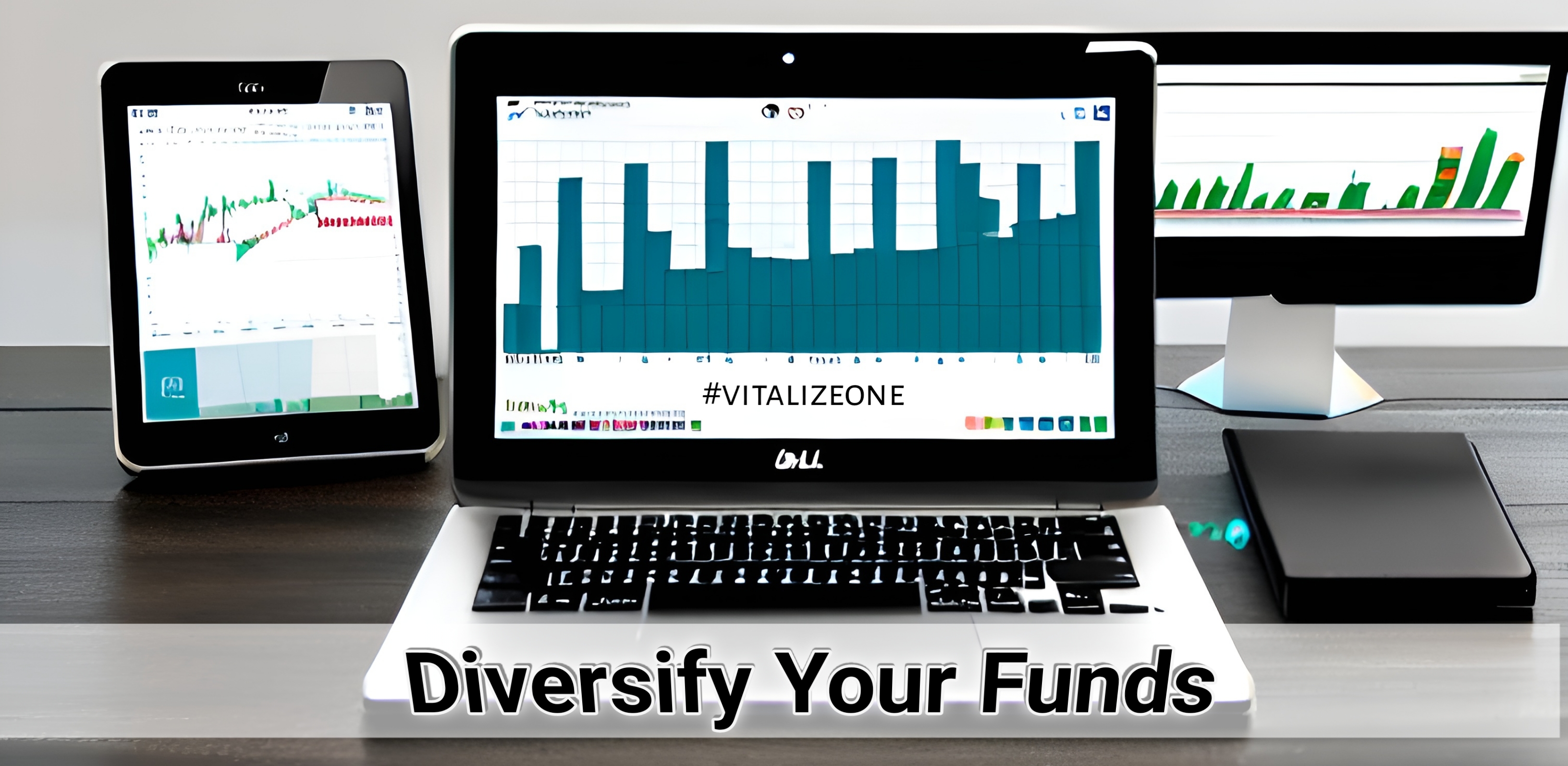- Diversify your funds with various tools and strategies to ensure your money is always working for you and to provide stability against market downturns.
- Assess your personal risk tolerance and long-term goals before choosing investment options, as each tool carries a different level of potential risk and reward.
- Explore a variety of investment tools, such as stocks, bonds, real estate, and ETFs, to build a balanced and resilient financial portfolio.
click on the NFT or here to collect
1) Stocks:
Stocks are one of the oldest and most popular tools for investing. When you buy stocks, you’re basically buying a small piece of ownership in the company or organization that you invested in. You can choose to purchase individual stocks, or you can invest in a variety of different stocks through mutual funds or exchange-traded funds (ETFs). By investing in stocks, you’ll be able to benefit from the profits that come along with owning a stake in a company. Those profits can range anywhere from minimal to significant, depending on the stock’s performance.
When investing in stocks, it’s important to consider your risk tolerance level as well as your long-term goals. Stocks are inherently more volatile than other investment options, such as bonds, and there is always the potential for losses as well as gains. It’s also important to diversify your stock investments – don’t put all of your eggs into one basket. Investing across multiple sectors and industries will help ensure that even if one sector takes a hit, your portfolio won’t suffer too much.
It’s also important to do research before jumping into any stock investments – look at the fundamentals, such as sales growth, profit margins, cash flow analysis, debt levels, etc., to get an understanding of how healthy a company really is. Be sure to stay up-to-date with the latest news and developments in the sector or industry you’re investing in.

2) Bonds:
Bonds are another popular tool for diversifying an investment portfolio. When you purchase a bond, you are essentially lending money to the issuing entity in exchange for the promise of repayment plus interest over a set period of time. The bond’s principal amount is repaid at maturity, while the interest is paid periodically until then. Bonds can be issued by companies, governments, and other entities, and they come in a variety of different types depending on their purpose, length, and interest rate.
Government bonds are generally considered to be one of the safest investments as the full faith and credit of the issuing government back them. Corporate bonds tend to be riskier, but they offer higher returns than government bonds. Treasury Inflation-Protected Securities (TIPS) are also a popular option, as they adjust with inflation to help protect against losses due to changing market conditions.
When investing in bonds, it’s important to consider your risk tolerance level and long-term goals. While bonds may provide more excellent stability than stocks or other investments, there is still potential for losses if interest rates rise or if the issuer defaults on its payments. Therefore, it’s important to diversify your bond investments across different types and issuers so that you won’t bear too much risk to your overall portfolio if one sector takes a hit. Professional advisors can provide invaluable advice when it comes to understanding which bonds are appropriate for an individual investor’s needs and risk tolerances.

3) Gold:
Gold is a popular tool for diversifying an investment portfolio. Investing in gold has several advantages, such as the potential for long-term appreciation and protection from inflation and currency devaluation. In addition, it is perceived to be a safe-haven asset during market volatility. Gold can also provide diversification benefits due to its lack of correlation with other financial assets.
Investors should consider their risk tolerance level and long-term goals when investing in gold. Gold prices can be volatile over short periods of time, so it’s important to think about how much risk you can handle before investing in any form of gold. Investors should also research the different types of gold investments available and consider factors such as liquidity, storage costs, and tax implications before making a decision on which vehicle best suits their needs.
Investors have several options for investing in gold, including physical gold bullion, coins, jewelry, or futures contracts traded on exchanges such as the Chicago Mercantile Exchange (CME).
Gold miners are another option, but these tend to carry higher risks than other forms of investing due to their dependence on commodity prices and operational risks associated with mining activities. Additionally, trading cash for gold, many investors opt for numismatic coins, which are collectible coins whose value may be linked to rarity rather than intrinsic metal value.
4) Personal Development:
Whether it’s personal development for yourself or for your family, investing in education is certainly something to consider. Many parents will want to provide their children with the best education they can possibly have and that’s where Daniel Lerner and David Lerner associates have helpfully given information on the pros and cons of 529 plans.
Investing in your child’s future or your own for the purpose of education can be money well spent and returns that are invaluable.

5) Exchange Traded Funds (ETFs):
Exchange-traded funds (ETFs) are similar to mutual and index funds in that they are diversified investments that invest in various assets. Unlike traditional mutual funds, however, ETFs can be bought and sold throughout the trading day on major stock exchanges such as the New York Stock Exchange or Nasdaq. This makes them more liquid than regular mutual funds and allows investors to take advantage of market opportunities with incredible speed and agility.
ETFs typically track an index such as the S&P 500 or Dow Jones Industrial Average, though some may focus on specific sectors or investment styles such as growth stocks or value stocks. When investing in ETFs, it’s important to consider your risk tolerance level and long-term goals. ETFs generally carry less risk than individual stock investments, but there is still the potential for losses depending on how the markets perform.
It’s also important to diversify your investments across different types and asset classes – don’t put all your eggs into one basket! The fees associated with ETFs can vary significantly, so comparing fees before investing is important.
click on the NFT or here to collect
6) Real Estate:
Real estate investing has become increasingly popular in recent years as investors look for alternative sources of income in a low-interest-rate environment. Real estate investments offer the potential for capital growth and regular rental income, as well as the opportunity to take advantage of tax benefits such as depreciation allowances.
When investing in real estate, it’s important to consider your risk tolerance level and long-term goals. Real estate investments can be risky if not managed properly, though there is still the potential for returns depending on how the market performs. It’s also important to diversify your investments across different types of properties – don’t put all your eggs into one basket!
The costs associated with real estate investments can be significant (e.g., legal fees, taxes, insurance premiums), so it’s important to get professional advice before making any decisions. Furthermore, investors should research different types of investments (e.g., residential, commercial, industrial) and markets before committing to any particular property.

7) Cryptocurrencies:
Cryptocurrency investing has become increasingly popular among those looking to diversify their portfolios and those seeking to take advantage of the potential for large returns. Cryptocurrencies such as Bitcoin, Ethereum, Litecoin, and Ripple offer investors the opportunity to speculate on digital assets that have no physical form or backing from any government or central bank.
When considering cryptocurrency investments, it’s important to understand your risk profile, long-term goals, and expectations for returns. Cryptocurrencies can be highly volatile, and there is a high level of risk associated with these types of investments – they may provide the potential for high returns in the short term. Still, there is also the potential for significant losses if the market moves against you.
There is no volatility in crypto stablecoins such as USDC and USDT; stablecoins are matched to one value of fiat, for example 1 USD is 1 USDC, or 1 USD is 1 USDT, sometimes fluctuations occur when funds are being exchanged on larger scale, and return back to valuation of 1.

8) Cash in the Safe:
Cash in the safe is a popular way for investors to store their assets and maintain liquidity. Cash investments can provide a secure and convenient way to store wealth, as well as provide access to funds when needed. However, it’s important to understand that cash investments are not typically an excellent vehicle for long-term growth or inflation protection – they tend to perform poorly over time compared to other asset classes such as crypto, stocks, bonds, and real estate.
When investing in cash, it’s important to consider your risk tolerance level and long-term goals. It’s also important to diversify your portfolio across different types of investments. Additionally, investors should be aware of the fees associated with cash investments, such as account maintenance and ATM fees. It’s important to keep an eye on the interest rate environment as this will affect the return of your cash investments.
In conclusion, there are many different types of investments available to investors. It’s important to understand your risk profile, long-term goals, and expectations for returns before deciding which type of investments are correct for you. Diversifying across different asset classes is a vital component of any successful investment portfolio – don’t put all your eggs into one basket. Seeking professional advice can help ensure that you make the best possible investment decisions for your individual needs.
VitalyTennant.com is an informative business website, with a hint of entrepreneurship.

















